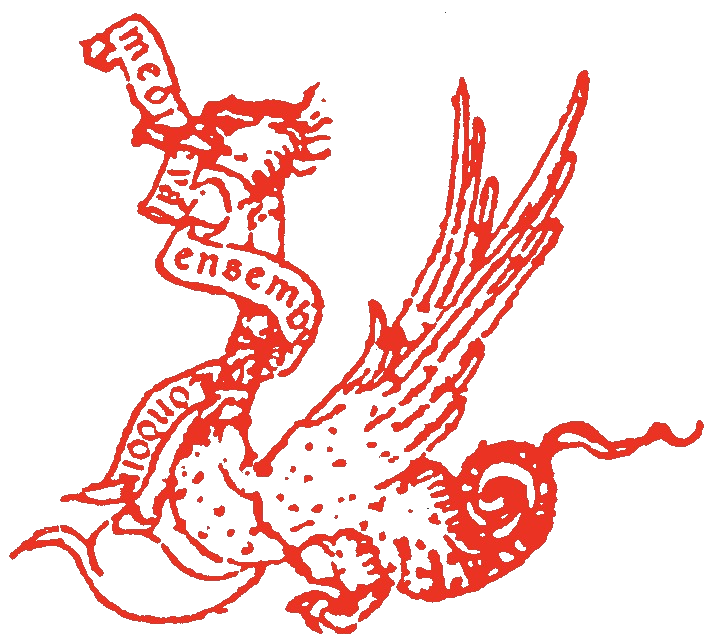of London
In 2011 Christopher Page wrote in the preludio to 'Bon Jour, bon mois et bonne estrenne', Festschrift in honour of Professor David Fallows:

'With
The Medieval Ensemble of London, founded by the brothers Peter and Timothy Davies, David's [Fallows] work bore fruit early on. The Davies brothers realised - and like most brilliant ideas, this one is simple - that a great deal of intricate and sophisticated French secular polyphony in two, three and four parts was already available in scholarly editions ... just waiting to provide an intensely focussed musical experience for any performers willing to give it the meticulous care it required. Choosing [in those days] tails for their concert dress - they gave the clear (and correct) implication that they were performing intricate chamber music to a high professional standard. The members of the Ensemble went on to produce a series of recordings that seem, in retrospect, very enlightened for their time'.
pub: Boydell & Brewer, 2011.
Some three-and-a-half decades earlier David Fallows himself wrote of a concert given on May Day:
'The Medieval Ensemble of London gave the most memorable early music concert I ever remember hearing - they perform with such unity of musicianship, accuracy of balance and security of ensemble as to place the group immediately in the very top category; the consistently high quality maintained throughout the concert made these features seem effortless and could be said to put them in a class of their own. If they maintain this standard of performance they will very quickly sweep the board'.
Musical Times, June 1976
Four years earlier still Peter Davies and Timothy Davies gave expression to their shared desire to make music by creating an ensemble designed to perform music of the Ars Subtilior ('a more subtle art'), the startlingly virtuosic works composed between the death of Guillaume de Machaut (1377) and the advent of Guillaume Du Fay (early 1420s) and which became its core repertoire.
Together with the Davies brothers, the founding members of the Ensemble were the outstanding countertenor Timothy Penrose and the masterfully adroit string player Robert Cooper. Important to the development of the nascent Ensemble was the vivid and agile voice of tenor John Elwes who took part in many concerts and broadcasts, and also featured on the debut disc (works of Matteo da Perugia).
The Ensemble quickly established its reputation for those very May Day qualities described by David Fallows.
So it was that the Ensemble engaged for projects, performances and recordings the collaboration of the leading specialist singers and players at the time, some of whom became regular long-standing performers with the group. They can be heard on the many recordings made by the Ensemble with Decca.
In 1979 the Ensemble began its longlasting association with the Decca Florilegium L'Oiseau-Lyre label, producing the first of an award-winning series of often ground-breaking titles.
The Ensemble performed throughout Europe at the major festivals and concert halls. In the UK, at all of the important festivals, tours for both the Early and Contemporary Music Networks, and performances at most of London's main concert venues. Choosing the Purcell Room on the South Bank as its London showcase, the Ensemble appeared there each year between 1973 - 1986, as many as five times in a season, and often as the opening concert of a new season.
In 1982 Sir Peter Maxwell Davies invited the Ensemble to provide the on-stage bands in the five revival performances at The Royal Opera House of his opera Taverner.
By the late 1980s it was clear that the 'early music bubble' had, if not burst, certainly deflated; interest and audience participation in the earlier repertoires was waning in preference to Historically Informed Performances of baroque and classical music, and other repertoires.
Peter and Timothy Davies felt, by that time, that the Ensemble had achieved great success and had made a highly important contribution over the years to the experience, performance and recording of late medieval music and as such, had little more to do.
The Medieval Ensemble of London became dormant in late 1992.
Its legacy is preserved on record. In October 2023 a fourteen-disc boxed set was released by Decca as the Complete Oiseau-Lyre Recordings (Decca 485 4676).